People
-
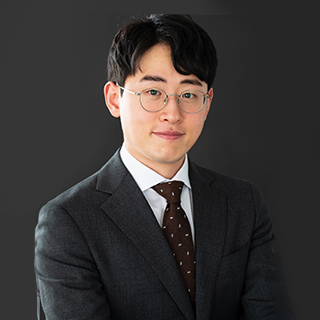 Donghun Kang Ph.D. Student
Donghun Kang Ph.D. Student- Waste management behavior
- Recycle
- Population
- Anthropocene
- M.S., Science and Technology Policy, KAIST, 2017
- B.S., Mechanical Engineering, KAIST, 2018
- B.S., Business and Technology Management, KAIST, 2018
Donghun majored both in mechanical engineering and technology management as an undergraduate at KAIST, wherein he was very active in committee as well as volunteering work such as "Green in KAIST" (green campus committee in KAIST) and "EWB KAIST" (Engineers Without Borders). He also has a journalistic experience on wind power generation in Chongsong, South Korea and a research experience on factors influencing waste management behaviors, a focus on cohort differences. He is currently expanding his research interests to Anthropocene, demographic changes, and e-waste.
-
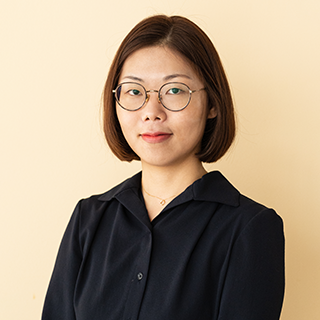 Miryang Kang Ph.D. Student
Miryang Kang Ph.D. Student- Disability STS
- Human-Robot Relationship
- User Innovation
- Crip Technoscience
- Women in Science and Engineering Field
- Sewol Ferry Disaster
- M.S., Science, Technology, and Policy, KAIST, 2020
- B.S., Chemistry, POSTECH, 2018
Publication강미량 (2022), 「작은 것들을 위한 공방: 국립재활원 보조기기 오픈플랫폼」, 『과학잡지 에피』, 20호.
강미량, 신희선, 전치형 (2021), 「자율보행체(自律步行體): 인간과 로봇이 함께 생성하고 분배하는 자율성에 대하여」, 『과학기술학연구』, 21(3), 98-138.
김성은, 강미량, 성두현, 이슬기, 김소영 (2021). 『대통령을 위한 열 가지 과학 질문』. 한국과학기술원.
전치형, 김성은, 김희원, 강미량 (2021). 『호흡공동체: 미세먼지, 코로나19, 폭염에 응답하는 과학과 정치』. 창비.
How can we design and deploy technology for an anti-ableist world while not ignoring the oppressive history of medical normalization? I’m a doctoral student at STP who tries to bridge the gap between STS and disability studies by investigating disability, medicine, and technology. For my master’s thesis, I conducted a one-year-long ethnographic study to examine how disabled people and non-disabled roboticists and medical staff cooperated to engineer walking in preparation for the Cybathlon. I’m now expanding my research sites into rehabilitation hospitals, welfare centers, and disability rights activism to document disabled people as experts, designers, and users of the accessible world. My other projects include the systemic discrimination of women scientist-engineers in Korea, the history of outdoor units of air conditioners, and scientific debates on the Sewol Ferry Disaster.
-
 Hyejung Koo Ph.D. Student
Hyejung Koo Ph.D. Student- Military innovation policy
- Middle-power strategy
- Space strategy
- Military technology
- M.S., Industrial Engineering, Seoul National University, 2016
- B.S., Mechanical Engineering, Korea Military Acedemy, 2006
Publication구혜정 (2020). 4차 산업혁명시대 군사혁신 정책이 놓치고 있는 것들. 과학뒤켠 (Behind Sciences) Vol.8.
As a military officer in the Republic of Korea Army, Hyejung Koo has contributed to designing Army Innovation Policies at the Army Headquarters. Also, she had served as an instructor of the Joint Forces Military University and researched Ground Operations and Military Innovation. Her research interest is technological innovation mechanism in middle-power countries and their strategic choices. Considering the US-ROK alliance and North Korea threat, she is studying military innovation policy and the dynamics of the current space competition. Recently, Ms Koo began her fellowship with the Office of the Korea Chair at the Center for Strategic and International Studies (CSIS) in December 2021.
-
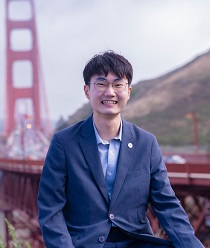 Junho Kwon Ph.D. Student
Junho Kwon Ph.D. Student- Science Diplomacy
- Techno-politics
- National Strategy
- Governance
- Nuclear
- M.S., Nuclear and Quantum Engineering, KAIST, 2023
- B.S., Nuclear and Quantum Engineering (Minor in Science and Technology Policy), Cum laude, KAIST, 2021
PublicationKwon, J., Yim, M.S. (2021) A Roadmap for DPRK’s Denuclearization Under the Consideration of Nuclear Latency, Transactions of the Korean Nuclear Society Virtual Spring Meeting, Kowon, J., Yim, M.S. (2022) Simulating the Evolution of North Korea’s First Nuclear Test, Transactions of the Korean Nuclear Society Spring Meeting, Jeju, Korea.
Kwon, J., Yim, M.S. (2021) A Roadmap for DPRK’s Denuclearization Under the Consideration of Nuclear Latency, Transactions of the Korean Nuclear Society Virtual Spring Meeting, Korea
As Korea expands globally, can it also create the K-Science wave? Amid the era of the Techno-politics where the global cooperation and competition in science and technology coexist, Junho considers the national strategy and governance of science and technology diplomacy. He is currently serving as the student representative of STP KAIST, and has served as the student representative of the Nuclear Environment and Nuclear Security (NENS) Laboratory (in 2022) and the president of the student council at the Department of Nuclear and Quantum Engineering in KAIST (in 2020). He is a member of the Young Future Energy Leaders (YFEL) at Khalifa University in the United Arab Emirates and the Young Engineers Honor Society (YEHS) at the National Academy of Engineering of Korea (NAEK). He was selected as a Doosan Heavy Industries Scholarship fellow awarded from the Korean Nuclear Society (KNS) and a summer program fellow of the KAIST Nuclear Nonproliferation Education and Research Center (NEREC).
-
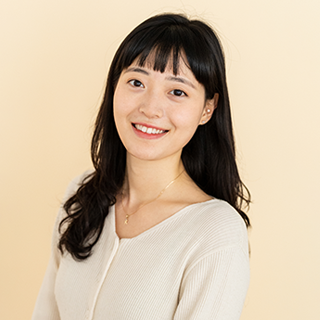 Hyun Ah Keum Ph.D. Student
Hyun Ah Keum Ph.D. Student- Waste
- Infrastructure
- Slow Disaster
- Environmental (In)justice
- M.S., Science and Technology Policy, KAIST, 2022
- B.S., Chemistry (Minor in Science and Technology Policy), KAIST, 2019
Publication금현아, 섀로나 펄, 스콧 놀스, 트리디베시 데이 (2022). “3장 마스크의 시간: 마스크를 통해 다시 본 코로나 경험.” 『마스크 파노라마: 흑사병에서 코로나19까지, 마스크의 과학과 정치』. 문학과 지성사.
금현아 (2022). 말하고 듣고 감응하며 연구하기: 석사논문 연구 수행과정을 돌아보며 (Talking, Listening, Feeling, and Responding: looking back on the process of conducting research for master's thesis). 과학뒤켠 (Behind Sciences) Vol.12
금현아 (2020). 가벼운 플라스틱의 무거움. 과학뒤켠 (Behind Sciences) Vol.8.
Hyunah Keum is a PhD candidate of STP. She is interested in waste, infrastructure, and labor at the intersection of STS and Environmental History. Especially, she is interested in material, spatial, and temporal aspects of waste management. She wrote her master’s thesis in particular about plastic wastes during COVID-19 in South Korea, to investigate different practices to regulate or promote the use of plastic from the perspective of slow disaster. She regards waste as a window to critically reflect on the bigger system from acts of extraction, production, consumption, and disposal. Hyunah is very keen to learn various skills (e.g. filming, making podcasts) which can transgress the boundary between academia and public
-
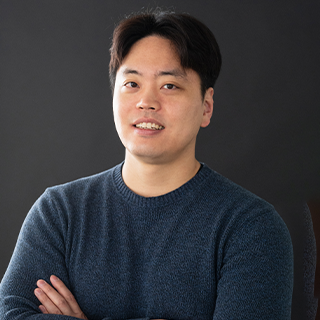 Sun Woong Kim Ph.D. Student
Sun Woong Kim Ph.D. Student- Biopharmaceutical industry
- Global value chain
- Technology innovation and entrepreneurship
- MPH, Health Economics, The University of Melbourne, 2013
- BHSc, Community Development, The University of Auckland, 2007
I’m currently a PhD candidate at the Graduate School of Science and Technology Policy, KAIST. The focus of my research is on public policy and socio-economic analysis of institutional impacts on biopharmaceutical industry and global value chain. I’ve also been deeply immersed in literature on entrepreneurship, innovation systems, and financial markets in order to understand the structure and mechanism of entrepreneurial activities and decision-making of various actors involved in technological innovation. Prior to joining KAIST, I’ve had opportunities to be exposed to diverse issues and challenges in both public and private sectors including university research centers, Graduate Consulting Group (Melbourne, AUS), Middlemore Hospital (Auckland, NZ), and more.
-
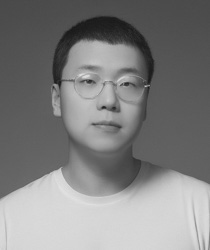 SeongGwang Kim Ph.D. Student
SeongGwang Kim Ph.D. Student- Citizen Acceptance of Sci-tech
- Energy Transition
- Anthropocene
- Digital Media Sphere
- M.S., Science Journalism, KAIST, 2021
- B.A., Theater and Film, Kyunghee University, 2013
- B.A., Journalism, Kyunghee University, 2013
Seonggwang Kim is interested in hybrids that form above social actors and their networks in the field of ‘Science and Technology Studies.’ He especially focuses on science anthropological stories and believes in the transformative power of in-depth narratives to impact society. Prior to joining the Graduate School of Science and Technology Policy at the Korea Advanced Institute of Science and Technology, he had, for about ten years, worked as a reporter and producer at Hankyoreh newspaper and CBS Radio Station, respectively, focusing on narrative-investigation. As a result, he won more than ten press awards, including the 49th Korean Journalist Award conferred by the Korea Journalists Association. Kim, whose background is filmic ethnography and journalism from the college days, has been focusing on investigative stories. At that time, the experience of covering the scene and analyzing the structure of the story became a focal point in creating the trajectory of a journalist and a Ph.D. student.
-
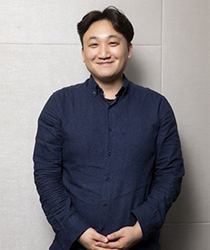 Seung Hyun Kim Ph.D. Student
Seung Hyun Kim Ph.D. Student- Technology_Policy
- Digital_Transformation
- Political_incentives
- Cloud
- M.A. Public Policy, KDI School of Public Policy, 2019
- B.A. Political Science, Yonsei University, 2011
PublicationInnovation for Development: Technical and Vocational Education and Training (TVET), KDI International Development Report Series, 2020.12
Cooperation Mechanisms with MDBs for New Northern and Southern Policies of Korea, KDI Policy Report for MOEF, 2018.10
Seung Hyun has accumulated experiences in managing policy consultation programs at Korea Development Institute (KDI). He studied political science and international studies during his undergraduate program at Yonsei University and obtained his master's degree in Public Policy at KDI School of Public Policy and Management.
-
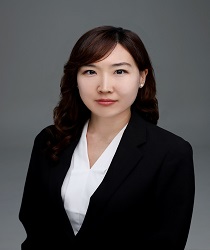 Jueun Kim Ph.D. Student
Jueun Kim Ph.D. Student- Innovation Cluster
- Regional Innovation System
- M.Phil., Politics, University of Oxford, 2015
- M.A., International Studies, Seoul National University, 2013
- B.A., English Language & Literature, Psychology, Yonsei University, 2011
Jueun is interested in the evolution of science and technology institutions in response to shifting economic, political, and social contexts over time. Her particular area of interest is the developmental trajectories of innovation clusters in the East Asian newly industrialised countries such as South Korea, Taiwan, and Singapore. At work, Jueun had many opportunities to exchange visits with organisations supporting innovation clusters in different countries. Such experiences have motivated her to comparatively analyse diverse national practices of innovation cluster policies
-
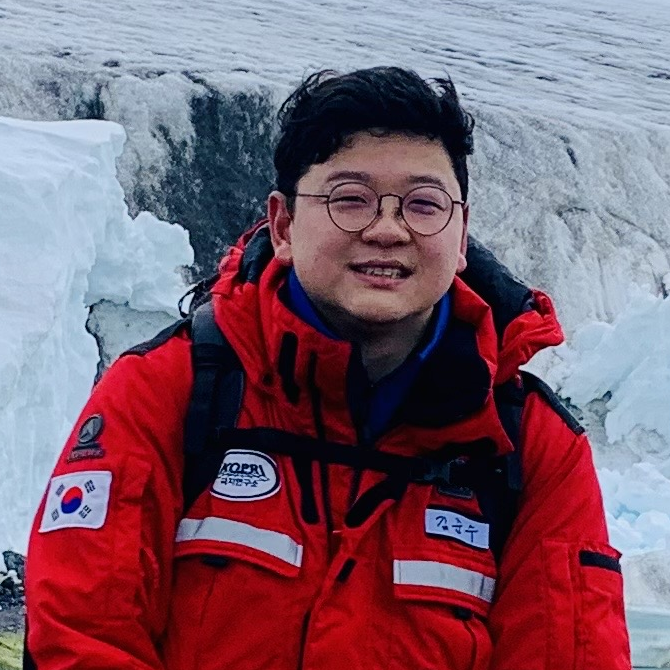 JunSoo Kim Ph.D. Student
JunSoo Kim Ph.D. Student- Non-human studies
- More-than-human approach
- East Asian urbanization
- Political ecology
- STS
- Anthropocene
- M.A., Sociology, Yonsei University, 2019
- B.A., Sociology, Yonsei University, 2015
PublicationKim Jun Soo, 2021. “Biopolitics of Invasive Species and More-than-human Biosecurity in South Korea: A case study of Procambarus clarkii and Onto-politics of Ecological Disturbance Species”. Economy and Society 132(1): 208-249.
Kim Jun Soo et al., 2021. “Changing Geographical Imaginations of the Polar Regions: From Terra Incognita to the Frontiers of the Anthropocene”. Journal of the Korean Greographical Society. 56(6): 585-605.
Kim Jun Soo. 2019. “Pig War: Toward the More-Than-Human Territoriality through African Swine Fever”. Journal of Culture and Historical Geography. 31(3): 41-60.
Kim Jun Soo. 2019. “The Production of Han-river: Developmental Urbanization and More-than-Human Waterscape”. Space and Environment. 29(67): 94-158.
Kim Jun Soo. 2018. “S. Korea’s Developmental Urbanization and Reshaping of ‘State-Nature’ Relations: Affective Governance of Urban Pigeons”. Space and Environment. 28(63): 55-100.
JunSoo has been working in the area of political ecology and urbanization theory. After JunSoo finished his master’s degree at Sociology, he worked as a researcher in the Center for Asia Urban Societies at Seoul National University. JunSoo has published various fields of nonhuman studies, more-than-human approaches, and the East-Asian developmental urbanization process in the regards of Geography and Sociology. Recently, JunSoo focusing his research on the contextualizing East-Asia Anthropocene regarding Urban Political Ecology and STS with the various case studies.
-
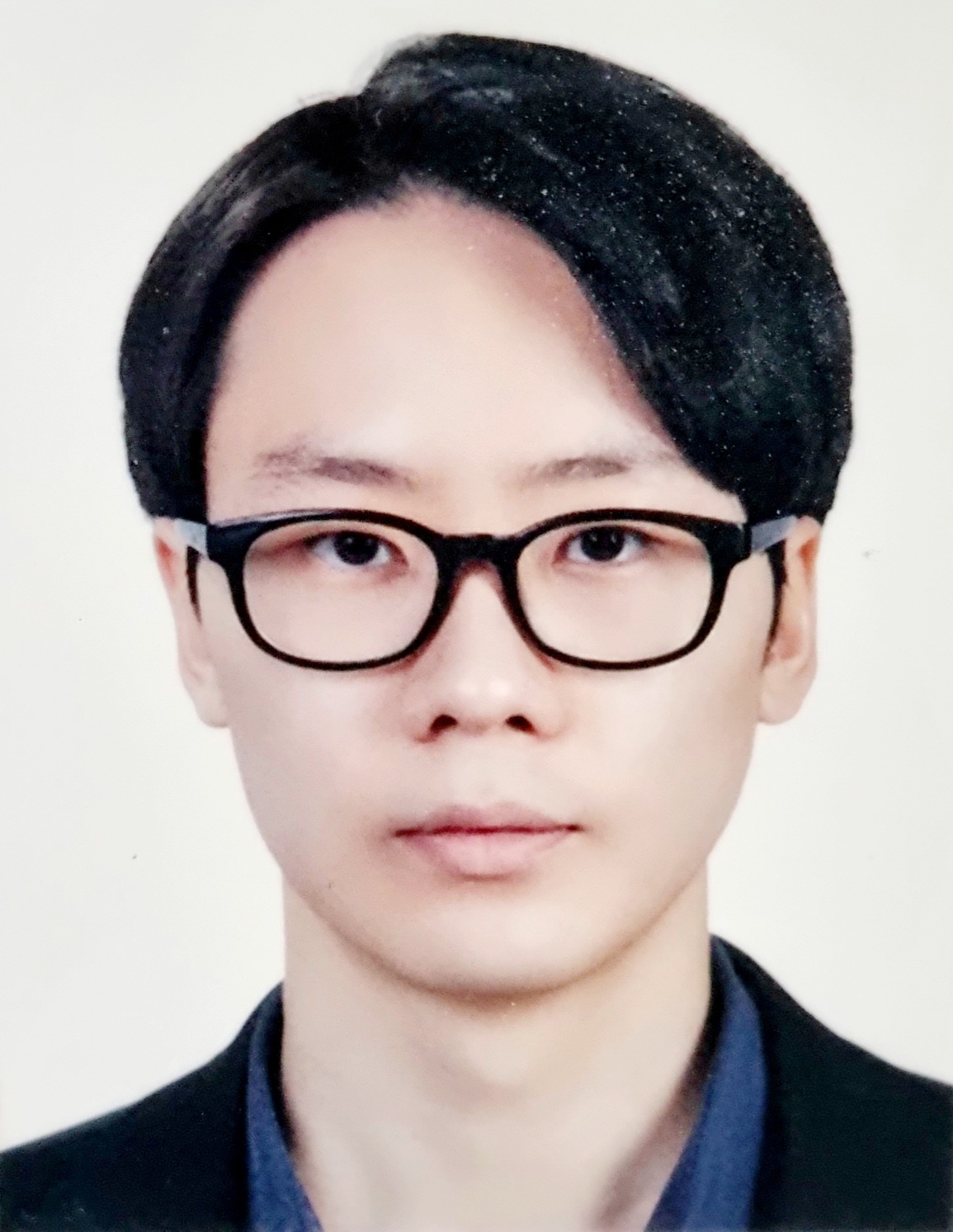 Junyong Kim Ph.D. Student
Junyong Kim Ph.D. Student- Sociology of Scientific Knowledge
- Philosophy of Science
- History of Science
- M.S., Sociology, Sogang University, 2023
- B.S., Sociology, Philosophy, Sogang University, 2021
Junyong Kim is interested in the sociology of scientific knowledge, philosophy and history of science, and accordingly holds a B.A. in Sciology/Philosophy and an M.A. in Sociology. In his master’s program, he studied the sociology of knowledge in particular, doing theoretical work that critically evaluated the epistemological and methodological claims of Bruno Latour. His current research focuses on building on these theoretical discussions to explore the relationship between institutional and lay practices in how knowledge such as mental disorder is constructed.
-
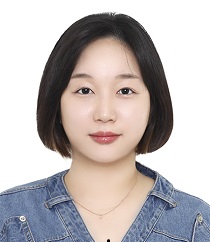 Agnes Jihae Kim Ph.D. Student
Agnes Jihae Kim Ph.D. Student- Human-Technology Interaction
- Assistive Technology
- Gerontechnology
- Digital Vulnerable
- Researcher, National Rehabilitation Center, 2020–2023
- Instructor, the Division of Design and Arts, Yonsei University, 2019–2023
- Ph.D., Industrial Design, Yonsei University, 2019
- M.S., Industrial Design, Yonsei University, 2016
- B.S./B.I.S., Industrial Design/Cognitive Science, Yonsei University, 2014
PublicationKim, A. J., Choi, M. J., Lee. S. Y. & Eun, S. D. (2022). Development of Appropriate Assistive Technology through Co-design. Journal of Integrated Design Research, 21(4), 27–40.,
Kim, A. J., Yang, J., Jang, Y., & Baek, J. S. (2021). Acceptance of an informational antituberculosis chatbot among Korean adults: mixed methods research. JMIR mHealth and uHealth, 9(11), e26424.
Won, J., Park, J., Woo, E., & Kim, A. J. (2021). Universal Design Strategy for Products in Residential Spaces. Archives of Design Research, 34(4), 87–101.,
Kim, A. J., Kim, J. B., & Kweon, O. S. (2020). Usability of Assistive Technology: User Interface Design Guidelines for Powered Wheelchairs. Archives of Design Research, 33(2), 73–87.
Kim, A. J., An, K. O., Yang, J., Rho, E. R., Shim, J., & Eun, S. D. (2024). Predicting adoption of the assistive technology open platform: extended unified theory of acceptance and use of technology. Disability and Rehabilitation: Assistive Technology, 1-13.
Ro, E. R., An, K. O., Kim, A. J., Jang, S. U., Kim, E. J., & Eun, S. D. (2024). Usability Study to Promote Co-creation Among People with Disabilities, Developers, and Makers with a Focus on the Assistive Technology Open Platform in Korea. IEEE Access.
Agnes Jihae Kim has the Ph.D. in industrial design, mainly conducted research on deriving design guides through research on the interaction between people and artifacts such as products, services, and spaces. She designed and conducted research on assistive technology for the older person and person with disabilities at the National Rehabilitation Center. She felt the importance of public policy, she joined STP. Currently, she is interested in how the government's science and technology support for older person, person with disabilities, and the digitally vulnerable should be done considering their characteristics.
-
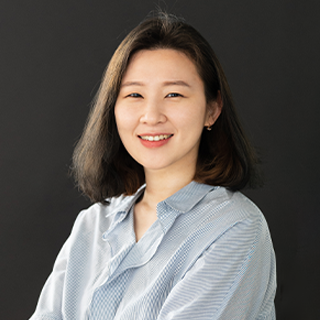 Taekyung Kim Ph.D. Student
Taekyung Kim Ph.D. Student- Information sharing
- Privacy
- Information management and regulation
- M.S., Science and Technology Policy, KAIST, 2018
- B.P.S., Political Science and International Relations, Korea University, 2015
PublicationTae Kyung Kim and Moon Choi. "Older adults’ willingness to share their personal and health information when adopting healthcare technology and services." International Journal of Medical Informatics, 126 (2019): 86-94.
Taekyung studied political science and diplomacy in her undergraduate years and applied STP to learn more about the role of science and technology in a national context. She wrote her master's thesis on older adults' willingness to share information with others and the underlying socio-economic factors. After graduating from STP, she worked at STEPI(2018-2021) and had a chance to experience the way the public policy sector works. She aims to combine her working experience with her research interest through doctoral courses, and her current primary interest is studying the regulation and management scheme of personal information within new technologies.
-
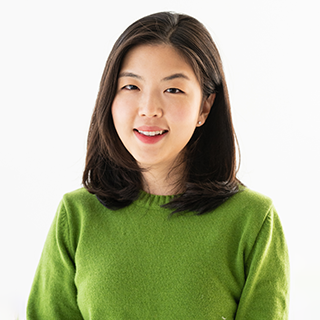 Heewon Kim Ph.D. Student
Heewon Kim Ph.D. Student- Politics of the Body
- Sciences of Facial Expression / Emotion / and Human Nature
- Human-Technology Relationship
- History of Science
- STS
- M.S., Program in History and Philosophy of Science, Seoul National University, 2016
- B.S., Biological Science (Minor in Science and Technology Policy), KAIST, 2014
PublicationHeewon Kim, Hyungsub Choi (2022). “From Hwangsa to COVID-19: The Rise of Mass Masking in South Korea,” East Asian Science, Technology and Society: An International Journal, 16(1), 97-107.
전치형, 김성은, 김희원, 강미량 (2021). 『호흡공동체: 미세먼지, 코로나19, 폭염에 응답하는 과학과 정치』. 창비.
Heewon Kim, Hyungsub Choi (2021). “COVID-19 and the reenactment of mass masking in South Korea,” History and Philosophy of the Life Sciences, 43(2), https://link.springer.com/article/10.1007/s40656-021-00400-y
김희원, 김성은 (2020), “인류세 시대의 컴퓨팅: 인간과 지구를 매개하는 컴퓨팅 기술”. 『과학기술학연구』, 20(1), 113-155.
I am a PhD Candidate at KAIST STP. In my doctoral dissertation, I will explore the cold war context of facial expression research, from nonverbal communication studies to computerized facial expression recognition systems. I hope to show how the meaning of human faces in these studies were shaped by behavioral scientists who were striving to find the universal human facial expression and human emotion, and also to understand how these ideas and knowledge were popularized across disciplines (including computer scientists) to meet a broader audience. I have several smaller, ongoing projects about face masks before and during Covid-19. I am also interested in the history of disaster memorials in South Korea.
-
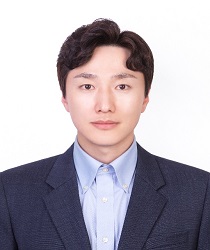 Cheolhoon Moon Ph.D. Student
Cheolhoon Moon Ph.D. Student- Digital heritage
- Science technology policy
- Disaster analysis
- Social issue
- Documentation
- Researcher, Cultural Heritage Administration, 2015~
- M.Sc., Digital Heritage, University of York, UK, 2015
- B.A., Cultural Heritage Management, Korea National University of Cultural Heritage, 2013
Cheolhoon is interested in the direction of national policies within the new paradigm of cultural heritage preservation brought by the utilization of digital technology. In his master's thesis, he addressed methods of digitally documenting and listing to safeguard intangible cultural heritage. At STP, his focus lies in shedding light on historical and heritage perspectives of disasters and events, as well as conducting research on the systematic preservation of relevant records. Additionally, he analyzes various social issues arising in the field of cultural heritage due to rapid advancements, and considers policies to prevent and resolve these issues.
-
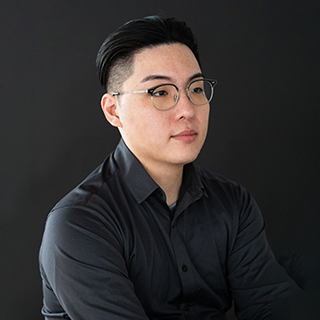 Joonhyeok Park Ph.D. Student
Joonhyeok Park Ph.D. Student- Information technology and finance
- Blockchain
- Decentralization
- M.S., Science and Technology Policy, KAIST, 2017
- B.S., Computer Science, KAIST, 2015
- B.S., Chemistry, KAIST, 2015
Publication박준혁 (2018). 등굣길 166.5km, 여행길 삼 년. 과학뒤켠 (Behind Sciences) Vol.5.
박준혁 (2016). 누군가가 시력을 잃었다. 과학뒤켠 (Behind Sciences) Vol.1.
My research interest is information technology in the finance sector and its social impacts. Specifically, my research topic is the relationship between the blockchain technology and decentralization of social resource and power. In my research, I try to answer that blockchain technology really makes a decentralized society in terms of economy and political decision-making processes. Furthermore, my research also shows how society also affects the process of development of blockchain technology through social expectations and regulations. For these reasons, my research relies on the theories from economic anthropology and sociology. Also, my research uses numerical and empirical methods, such as model-based simulation, discourse analysis, and participant observation.
-
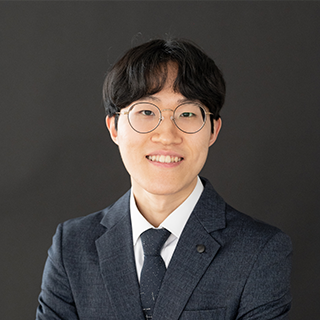 Hyeonbin Park Ph.D. Student
Hyeonbin Park Ph.D. Student- Disaster
- Climate change
- forest & wildfire management
- multispecies relationships
- Anthropocene
- M.S., Physics, KAIST, 2021
- B.S., Physics, KAIST, 2018
Publication박현빈 (2020). 마법 도시의 경계에 선 프리먼 다이슨의 당부 (서평: 프리먼 다이슨, 김희봉 역, 2009, 『프리먼 다이슨, 20세기를 말하다』). 과학뒤켠 (Behind Sciences) Vol.9.
Myung-Ae Choi, Hyeonbin Park, Joelle Champalet, Hanah Sung. (2023). Nonhuman Neighbours in the City: Human-egret Conflicts in Daejeon Metropolitan City. Journal of Korean Urban Geographical Society, 26(1), 17-36. ( 최명애, 박현빈, Joelle Champalet, 성한아. (2023). 도시의 비인간 이웃: 대전시 주민-백로 갈등을 중심으로. 한국도시지리학회지, 26(1), 17-36.)
Hyeonbin Park is a Ph.D. student at the Graduate School of Science and Technology Policy at KAIST (Korea Advanced Institute of Science and Technology). Hyeonbin’s research fields cover Science and Technology Studies intersecting with environmental history and disaster studies. Especially, his current research focuses on how environmental knowledge and practices about forests, fires, and wildlife interact under the course of wildfire governance in South Korea. Hyeonbin investigates forest history in the light of knowledge politics regarding forest and fire management, and multispecies relationships between humans and nonhumans to imagine a flourishing future in the destructive era called the Anthropocene.
-
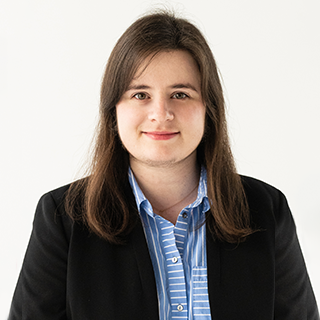 Joëlle Champalet Ph.D. Student
Joëlle Champalet Ph.D. Student- Smart city
- Resilience
- More-than-human studies
- Everyday practices
- M.S., Science and Technology Policy, KAIST, 2021
- M.S., Innovation and Territory, Grenoble-Alpes University, 2019
- B.S., Geography and Spatial Planning, Paris Est Créteil Val-de-Marne University (UPEC), 2017
PublicationChampalet, J. (2020). Studying and Living in Korea: the experience of French master student in STP. 과학뒤켠 (Behind Sciences) Vol.9.
During her bachelor's and her first master’s degree in Geography and Urban Planning at two different French universities, Joëlle had the opportunity to focus on the relationship between technology and human beings through the question of digital communities and their ability to interact with territories. She joined STP to further develop her interest in the intertwined relationship between technology and territories and worked in the transformation of everyday practices in smart cities during her master’s degree at STP. Her current research interests include cities and resilience, as well as cities and disaster, in Korea and in France.
-
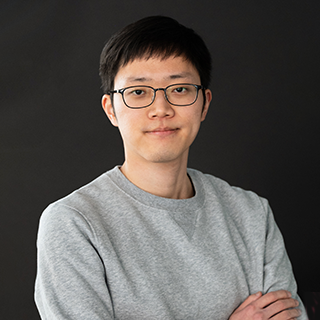 Richard Sung Ph.D. Student
Richard Sung Ph.D. Student- Philosophy of Science
- Science and Values
- Biomedicine
- Pharmaceutical regulation
- M.S., Science and Technology Policy, KAIST, 2018
- B.S., Physics, KAIST, 2016
PublicationSung, D. & Holman, B. (2023). Against Evidential Pluralism in Pharmaceutical Regulation. Philosophy of Science Vol. 90(5).
성두현 (2022). 과학철학의 관점에서 사유하는 항공우주의학 규제의 미래. BioINpro 105호.
김성은, 강미량, 성두현, 이슬기, 김소영 (2021). 『대통령을 위한 열 가지 과학 질문』. 한국과학기술원.
Sung, R. D. & Agarwal, S. (2021). On the Lanscape of Youth Participation in Science Policy. 과학뒤켠 (Behind Sciences) Vol.11.
성두현 (2020). 과학적 모형의 가치와 과학의 가치중립성에 대하여. 과학뒤켠 (Behind Sciences) Vol.9.
성두현 (2017). 격리된 상상력: SCP 재단과 대중의 상상력에 대하여. 과학뒤켠 (Behind Sciences) Vol.3.
As a student of philosophy of science and social epistemology, I am generally interested in tackling issues emerging at various intersections of science and the law. In particular, my thesis research concerns the epistemology and role(s) of values in the validation of alternatives to animal testing for biomedical research and toxicological risk assessment. Aside from my thesis research, I am conducting research on other relevant topics such as conflicts of interest in medicine, methodological disputes in (evidence-based) medicine, and controversies surrounding various approval regimes in pharmaceutical regulation. As part of my methodological commitment to an “empirically-oriented” philosophy of science, I use a variety of theoretical and empirical methods such as conceptual analysis, argumentation analysis, decision theory, grounded theory, and historiography.
-
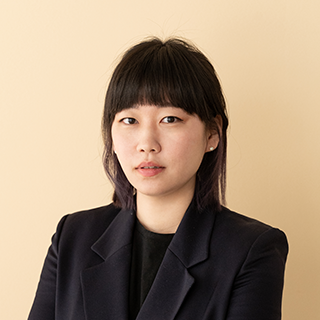 Heesun Shin Ph.D. Student
Heesun Shin Ph.D. Student- Robot
- Simulation
- Human-Robot Relationship
- M.S., Science and Technology Policy, KAIST, 2016
- B.S., Civil and Environmental Engineering (Minor in Science and Technology Policy), KAIST, 2014
Publication강미량, 신희선, 전치형 (2021), 「자율보행체(自律步行體): 인간과 로봇이 함께 생성하고 분배하는 자율성에 대하여」, 『과학기술학연구』 제21권 3호, pp. 98-138.
Chihyung Jeon, Heesun Shin, Sungeun Kim, and Hanbyul Jeong. “Talking Over the Robot: A Field Study of Strained Collaboration in a Dementia-Prevention Robot Class.” Interaction Studies 21, no. 1 (2020): 85-110.
김성은, 신희선, 전치형 (2018), 「평창올림픽과 움직임의 위기: 로봇, 5G 네트워크, 가상현실 기술은 인간 움직임의 가치를 위협하는가」, 『움직임의 철학』 제26권 4호, pp. 67-85.
신희선, 전치형 (2018), 「노인과 로봇은 어떻게 만나는가: 상호작용의 조건과 매개자의 역할」, 『과학기술학연구』 제18권 2호, pp. 135-179.
Heesun Shin is a Ph.D. candidate in the Graduate School of Science and Technology Policy at KAIST. She holds a B.S. in Civil and Environmental Engineering (KAIST) and M.S. in Science and Technology Policy (KAIST). Her research interests include cultures and politics of robotics and human-robot relationship in the making. In her thesis project titled “Situating Robots in the Human World: Disaster, Service, and Care Robots in Simulation,” she examines how the design, development, and use of disaster robots, logistics robots, and care robots are entangled with the sociotechnical simulations of the human world.
-
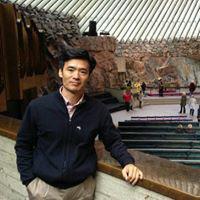 Ohsung Ahn Ph.D. Student
Ohsung Ahn Ph.D. Student- Aerospace Policy
- Big Science Policy
- National S&T strategy
- Director of Future Strategy Headquarter, Korea Aerospace Research Institute, 2019-2021
- M.S., Aerospace Engineering, Seoul National University, 1994
- B.S., Aerospace Engineering, Seoul National University, 1992
Publication안오성 (2021). 경제사회적 맥락에서, UAM 사업화 경쟁 현황과 전략적 대안 (Strategic Review on UAM Commercialization Competition with Socio-economic Perspective). 항공우주산업기술동향 (Current Industrial and Technological Trends in Aerospace) 19(2), pp. 9-27. 대전: 한국항공우주연구원 (KARI).
안오성 (2017). 왜 메타과학기술정책인가: 해외동향·연구자 민원처리·화려한 담론을 넘어서기 위한 과제는?. 과학뒤켠 (Behind Sciences) Vol.2.
안오성 (2016). Long Policy Review: 전환기(transition) 논의. 과학뒤켠 (Behind Sciences) Vol.1.
Ohsung has two decades of experience as a system integration engineer in various aerospace programs: Smart UAV program (KARI, 2002~2012), T-50 program (KAI, 1997~2002) and for the commercial aircraft program (Samsung Aerospace, 1994~1997). For the last 10 years, he switched his career path to policy and NIS strategy study especially in aerospace, technology innovation and big-science. He served as director of Future Strategy Headquarter in KARI (2019~2021), head of Research Policy Ins. For GRIs (Government Research Institutes) in SENARI (2019), and an advisor for PACST (Presidential Advisory Council for S&T) (2017). Recently, he published a paper, “Strategic Review on UAM Commercialization Competition with Socio-economic Perspective” (2021, KARI). He is struggling with the research question: how to stop manipulating the public strategy for big R&D programs.
-
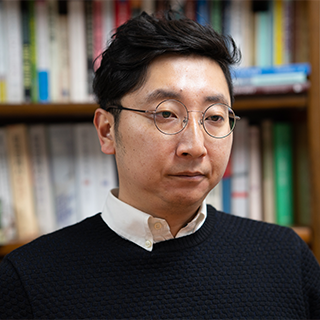 Seung Hoon Yang Ph.D. Student
Seung Hoon Yang Ph.D. Student- STP
- Industrial Sociology
- Heavy Industry
- Professor, Department of Sociology, Kyungnam University.
- M.A., Cultural Studies (Cultural Anthropology), Yonsei University, 2012
- B.A., Political Science, Konkuk University, 2005
Publication양승훈 (2019). 『중공업 가족의 유토피아』. 파주: 오월의봄.
양승훈 (2017). 『사라진 영국의 산업도시』. 퍼블리.
Seung Hoon studied political science and anthropology. He worked in a shipyard for five years and was in the in-house PR team and the Strategy and Innovation division in DSME. SH is interested in innovation studies, policy studies, and industrial sociology. He tries to understand the culture of engineers and sets the innovation policy from their view. SH is also interested in the process of industrial restructuring and tries to understand how industrial restructuring is operating in the societal and political sense. And he published a book, "The Utopia of Heavy Industry Family(중공업 가족의 유토피아)" in 2019 and got an award, "The 60th Award for the Best Korean Liberal Arts Book(제 60회 한국출판문화상 교양부문)".
-
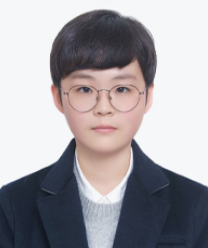 Jisu Woo Ph.D. Student
Jisu Woo Ph.D. Student- Women in STEM policy
- Innovation policy
- Gender equality
- M.S., Science and Technology Policy, KAIST, 2021
- B.A., Philosophy, Ewha Womans University, 2018
- B.S., Physics, Ewha Womans University, 2018
Publication우지수 (2019). 과학기술 인력 정책의 뒤켠: 여성과학기술인 육성·지원 기본계획을 중심으로. 과학뒤켠 (Behind Sciences) Vol.7.
Jisu attended Ewha Womans University and majored in physics and philosophy. Jisu became interested in policy in terms of its effects on people while pursuing two separate majors and participating in many social activities. Moreover, the environment of KAIST sparked a curiosity in how technology is efficiently implemented in the actual world. Jisu is passionate about two areas of research: women in STEM policy and innovation policy.
-
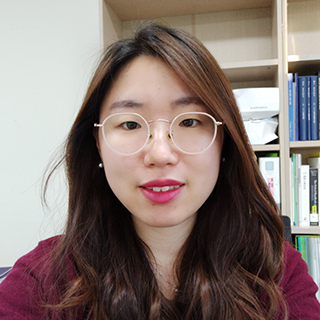 Daeun Lee Ph.D. Student
Daeun Lee Ph.D. Student- Global S&T Policy
- Policy process
- S&T governance
- Researcher, Science and Technology Policy Institute, 2015~.
- M.S., Science and Technology Policy, KAIST, 2015.
- B.S., Electrical Engineering, UT Dallas, 2012.
Publication이다은 (2017). 창업 열풍을 통해 바라본 KAIST의 미래. 과학뒤켠 (Behind Sciences) Vol.2.
After receiving her master’s degree at KAIST STP, Daeun currently works at the Science and Technology Policy Institute (STEPI). She has been participating in research projects regarding technology competition and science diplomacy. Her working experiences expanded her academic inquiry to the dynamics of policy making process and S&T policy governance in the global level. She hopes to connect her everyday working experiences to her academic project.
-
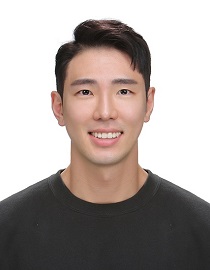 Dong Joon Lee Ph.D. Student
Dong Joon Lee Ph.D. Student- STI4SDGs
- National Innovation System
- Cluster Innovation
- SME Policy
- Nuclear Policy
- M.A., Public Policy, National Graduate Institute of Policy Studies, 2016
- B.A., Political Science and International Relations, Underwood International College, Yonsei University, 2013
Dongjoon is mainly interested in designing efficient and comprehensive science and technology policies and strategies for sustainable growth. Thus his main research interests include national innovation system, bottom-up innovative ecosystem, cluster innovation and SME policies. Prior to joining KAIST, he has also worked in the nuclear energy sector thus his research area is not just confined to innovation policies, he also has a keen interest in nuclear policy as well.
-
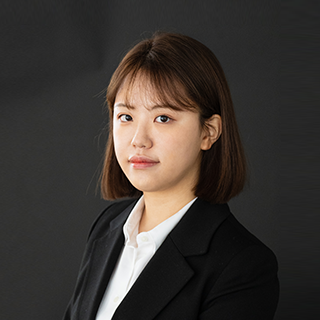 Seulgi Lee Ph.D. Student
Seulgi Lee Ph.D. Student- Synthetic pesticides
- History of Science
- Anthropocene
- Land use
- M.S., Science and Technology Policy, KAIST, 2021
- B.S., Biotechnology, Kyungpook National University, 2018
- B.A., Journalism & Mass Communication, Kyungpook National University, 2018
Publication이슬기 (2021). 농약을 중심으로 본 녹색혁명: 1970년대 증산과 공해에 가려진 농약 중독. 한국과학사학회지 제43권.
김성은, 강미량, 성두현, 이슬기, 김소영 (2021). 『대통령을 위한 열 가지 과학 질문』. 한국과학기술원.
Seulgi studied biotechnology, and journalism and mass communication at Kyungpook National University. While studying two different majors, she got interested in how science and technology interact with societies. After entering STP, she tries to explore toxic materials, their risks, and their use in the late 1900s South Korea. More specifically, she focuses on synthetic pesticides and tries to contextualize the relationship among government’s policies, pesticides, workers, and environment. She is also interested in the Anthropocene and how to understand the land use problem in its discourse.
-
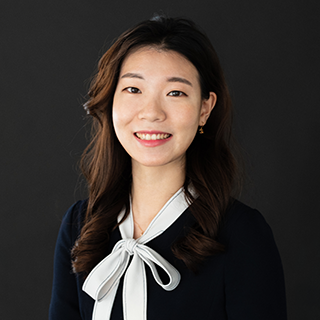 Seulgi Lee Ph.D. Student
Seulgi Lee Ph.D. Student- Disaster Studies
- Feminist-STS
- Field Studies
- Memorial
- Justices
- Sewol Ferry Disaster
- Local context
- Slow Disaster
- Climate change
- M.S., Science and Technology Policy, KAIST, 2023
- B.S., Chemistry, POSTECH, 2020
Publication이슬기 (2022). 서평: 미쳐있고 괴상하며 오만하고 똑똑한 여자들의 겸손한 목격에서 배우기 (Book Review: Learning from Humbly Witnessing Crazy, Odd, Arrogant, and Smart Women). 과학뒤켠 (Behind Sciences) Vol.12.
STP Ph.D. student Seulgi Lee received her master's degree with a thesis that examined the science involved in straddling the realms of disaster investigation and memorialization, focusing on the Sewol ferry investigation commission and the practices of bereaved families. She is currently broadening her interests to explore the role of science and technology in human lives during slow disasters. Her other research interests include carbon accounting and the relationship between women and disasters.
-
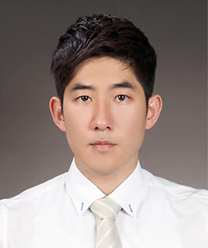 Junho Lee Ph.D. Student
Junho Lee Ph.D. Student- R&D effectiveness
- Impact evaluation
- S&T and international development
- Big data
- M.A., Development Policy, Korea Development Institute School, 2017 (Concentration in Public Finance)
- B.A., Spanish, Hankuk University of Foreign Studies, 2014
- B.A., International Studies, Hankuk University of Foreign Studies, 2014
Junho is a Ph.D student with multiple working experiences in institutions such as KDI, Organization of American States, SKnetworks, among many others. He naturally gained interest in the science and technology policy field through participation in multiple Government ODA including KSP with Honduras and Paraguay. His latest research topics while working in STEPI (Science Technology Policy Institute) were ‘Impact Evaluation of R&D Investment on Firms' Growth’, ‘Inquiry of characteristics of creative organizations’, ‘Inclusive innovation’. His major research interests are assessment of R&D effectiveness, International Development (development of STI ecosystem) and Big data.
-
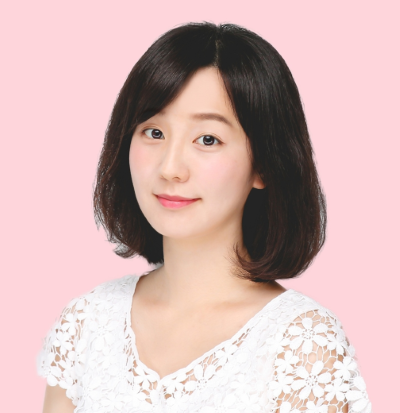 Yena Chae Ph.D. Student
Yena Chae Ph.D. Student- Hydrogen economy
- Low carbon energy economy
- Renewable energy policy
- Energy security & shale gas
- ICT and energy management
- M.A., Public Management, Korea Development Institute School (Concentration: Global Governance and Political Economy), Magna Cum Laude
- B.Com., Economics, University of Otago
Yena is Korea’s country representative for World Energy Council’s (UN-accredited global energy body, with member organizations in over 90 countries) future energy leaders. As she envisions a greener tomorrow, her interest largely lies in implementing the right green energy policies. She is passionate about sustainable energy developments and building a hydrogen economy in Korea. Yena’s work in the public sector has focused on gas regulations; her previous research includes certification standards for Hydrogen Vehicles, publications such as ‘Hydrogen an Enabler of the Grand Transition’, and contribution towards a G20 policy recommendation. Yena’s research interests include energy security & shale gas, low carbon energy economics, the role of ICT in energy efficiency management-smart grid & ESS, and renewable energy project financing.
-
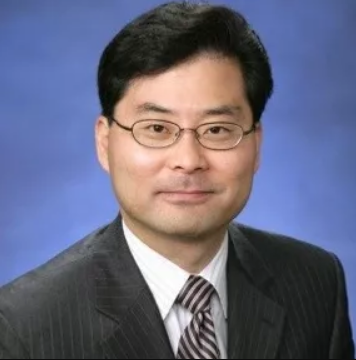 Chul Choi Ph.D. Student
Chul Choi Ph.D. Student- Intellectual property
- Innovation policy
- Institutional innovation in S&T
- Professor, Law School, Hankuk University of Foreign Studies
- LL.M., international Finance Law, University of London
- LL.M., intellectual Property Law, University of London
- M.B.A., International Business and Policy, Seoul National University
- B.A., Business Administration, Seoul National University
Chul studied international business and policy at SNU. His research on the process of internationalization of Korean companies based on the concept of value chain led him to study intellectual property law in the UK. Upon completion of the LL.M. program and legal studies in the UK, he worked for an international law firm in London, Allen & Overy, as a lawyer in the field of international finance. He has been interested in combining IP and finance as a base for developing IP and innovation ecosystem. He joined STP in order to expand his research on IP and innovation through understanding the policy aspects of science and technology. He is also interested in the institutional aspects of science and technology development from policy and legal perspectives.
-
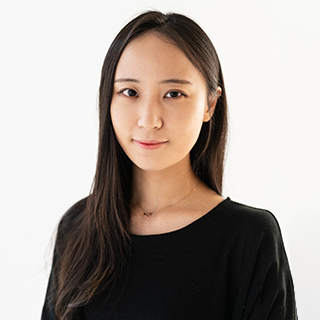 HyeJeong Han Ph.D. Student
HyeJeong Han Ph.D. Student- Drug design
- Context of Pursuit
- Artificial Intelligence
- M.S., Science and Technology Policy, KAIST, 2019
- B.S., Chemical and Biomolecular Engineering, KAIST, 2017
Publicationii. 한혜정 (2021). 파는 윤리: AI 윤리와 기업의 영향에 대하여. 과학뒤켠 (Behind Sciences) Vol.11.
Scientists cannot avoid making decisions in epistemically fragile situations, and science and technology policy should address the inherent fragility of science. I am a doctoral student at STP who analyses decision-making in the context of pursuit, specifically in the pharmaceutical and biohealth industries. I studied chemical and biomolecular engineering as an undergraduate and received a master’s degree from STP for a thesis on the use of machine learning techniques in judicial decision-making. My current research interests include scientific practices in drug design as well as the application of artificial intelligence in drug discovery and development. Furthermore, I am interested in exploring how history and philosophy of science can have a meaningful engagement in policy practices.
-
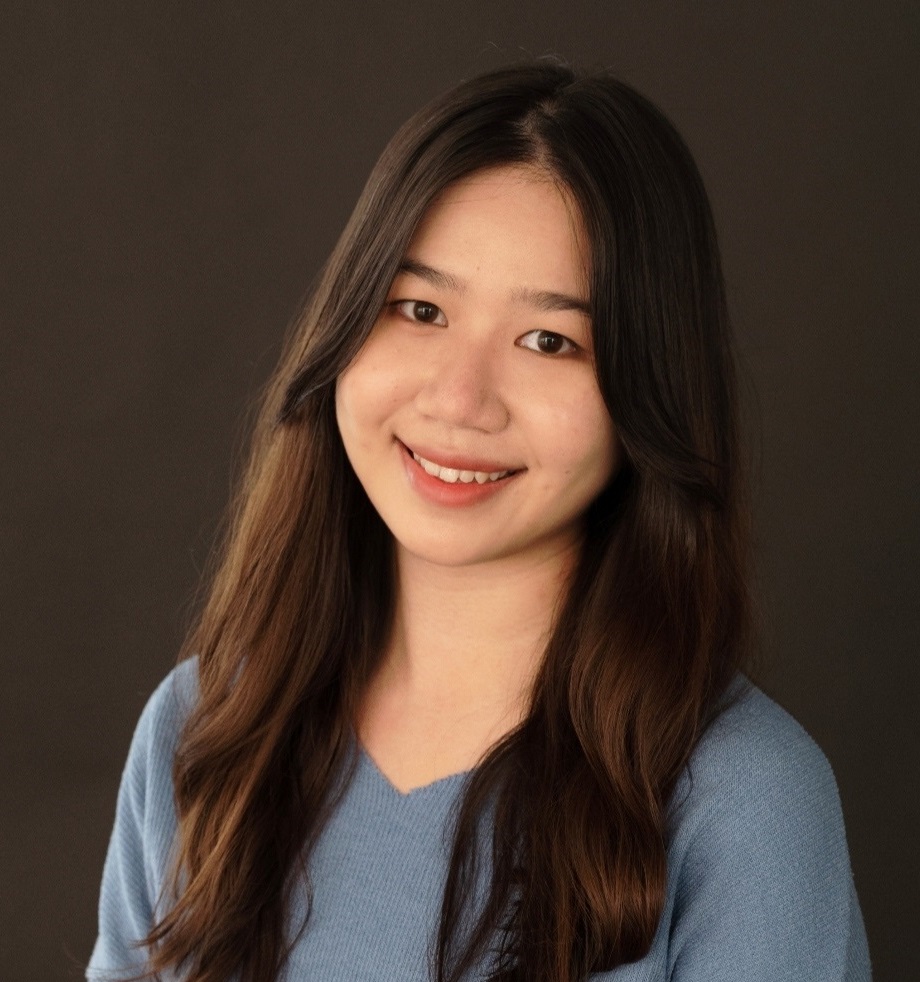 Ern Chern Khor Ph.D. Student
Ern Chern Khor Ph.D. Student- Computer science
- Information Technology Policy
- Tech startup ecosystem
- Online platform
- M.S., Science, Technology, and Policy, KAIST, 2022
- B.S., Computer Science, KAIST, 2020
- B.S., Business and Technology Management, KAIST, 2020
PublicationKhor, E. C. (2021). Good People, Good Books, and Zoom. 과학뒤켠 (Behind Sciences) Vol.10.
Ern Chern studied computer science and business management in undergraduate school. Using her knowledge in both disciplines, she was active in researches and programs in areas including disaster management, tech startup ecosystem, and online platforms. She became a representative of KAIST to countries like China and Indonesia to learn about their technology development from different perspectives. During those international projects, she had opportunities to directly experience the social, economic, and environmental impacts of information technology nowadays, both positive and negative ones. As she believes that policy studies is crucial to guide the technology development for a better society, she hopes to further study on social issues and policymaking in emerging technologies during graduate school.

